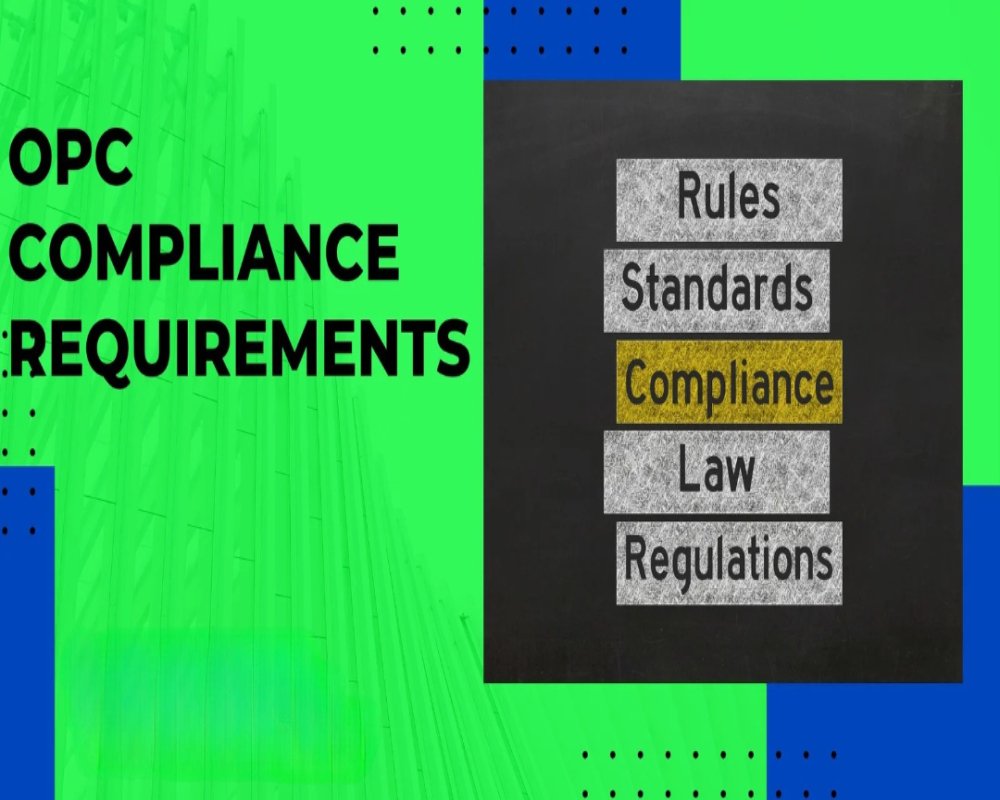Introduction
A One Person Company (OPC) is a unique business model introduced under the Companies Act, 2013, that allows a single entrepreneur to enjoy the benefits of a private limited company. While OPCs are granted several compliance relaxations compared to multi-member companies, they are still bound by certain statutory obligations. These compliance requirements ensure legal accountability, financial transparency, and smooth governance. Understanding these obligations is essential for OPC owners to maintain good standing with regulatory authorities and avoid legal penalties. This article provides an in-depth introduction to the major compliance requirements applicable to an OPC in India.
Annual Filing with the Registrar of Companies
Every OPC is required to file its annual returns and financial statements with the Registrar of Companies (RoC). The annual return must be filed using Form MGT-7A, and the financial statements must be submitted through Form AOC-4. These filings disclose the company’s financial health and shareholding structure, thereby ensuring regulatory transparency.
Statutory Audit of Financial Statements
OPCs must get their financial records audited by a Chartered Accountant, regardless of turnover. An audit report must accompany the financial statements filed with the RoC. This audit ensures accuracy in financial reporting and builds confidence among stakeholders, including banks and investors.
Maintenance of Statutory Registers and Records
An OPC is legally required to maintain several statutory registers, including those related to the register of members, register of charges, and minutes of board meetings. These records must be updated regularly and made available for inspection when required. This documentation is crucial for demonstrating the company’s legal and procedural compliance.
Board Meetings and Resolutions
If the OPC has more than one director, it must hold at least one board meeting in each half of the calendar year, with a minimum gap of ninety days between the two meetings. If there is only one director, no board meetings are necessary, but resolutions must be recorded and signed. This provision ensures internal governance even in a single-owner structure.
Income Tax Compliance
OPCs must file their income tax returns annually in Form ITR-6, regardless of profit or loss. Additionally, they must comply with advance tax payment requirements if the tax liability exceeds ₹10,000 in a financial year. Delayed filings or payments attract interest and penalties, making timely compliance crucial.
GST Registration and Filing
If the turnover of an OPC exceeds the prescribed threshold limit for Goods and Services Tax (GST), it must register under the GST Act. Once registered, the company is required to file monthly, quarterly, or annual GST returns depending on the chosen scheme. Proper GST compliance is essential for maintaining supplier and client trust.
Appointment and Role of the Nominee
At the time of incorporation, an OPC must appoint a nominee who will take over the company’s ownership in case of the promoter’s death or incapacity. Any change in nominee details must be promptly communicated to the RoC through Form INC-4. This requirement ensures business continuity and compliance with succession norms.
Conversion Provisions and Threshold Monitoring
An OPC must closely monitor its paid-up share capital and turnover. If either exceeds ₹50 lakh or ₹2 crore respectively, the company must mandatorily convert into a private or public limited company. This conversion must be completed within six months, and relevant forms must be filed with the RoC. Failing to do so results in penalties and non-compliance status.
Conclusion
Compliance is a critical aspect of managing a One Person Company in India. While OPCs enjoy several regulatory relaxations, they must adhere to annual filings, tax obligations, audit requirements, and governance protocols. These compliance measures not only ensure legality but also enhance the company’s credibility and operational discipline. For any OPC to thrive in a competitive business environment, maintaining strict adherence to these requirements is essential for sustainable growth and long-term success.
Hashtags
#Compliance #OPC #BusinessRegulations #LegalRequirements #CorporateGovernance #ComplianceTraining #BusinessEthics #RegulatoryCompliance #OPCFormation #Entrepreneurship #SmallBusiness #BusinessLaw #RiskManagement #ComplianceStrategy #CorporateCompliance #Startups #BusinessSuccess #LegalAdvice #IndustryStandards #ComplianceAwareness


0 Comments